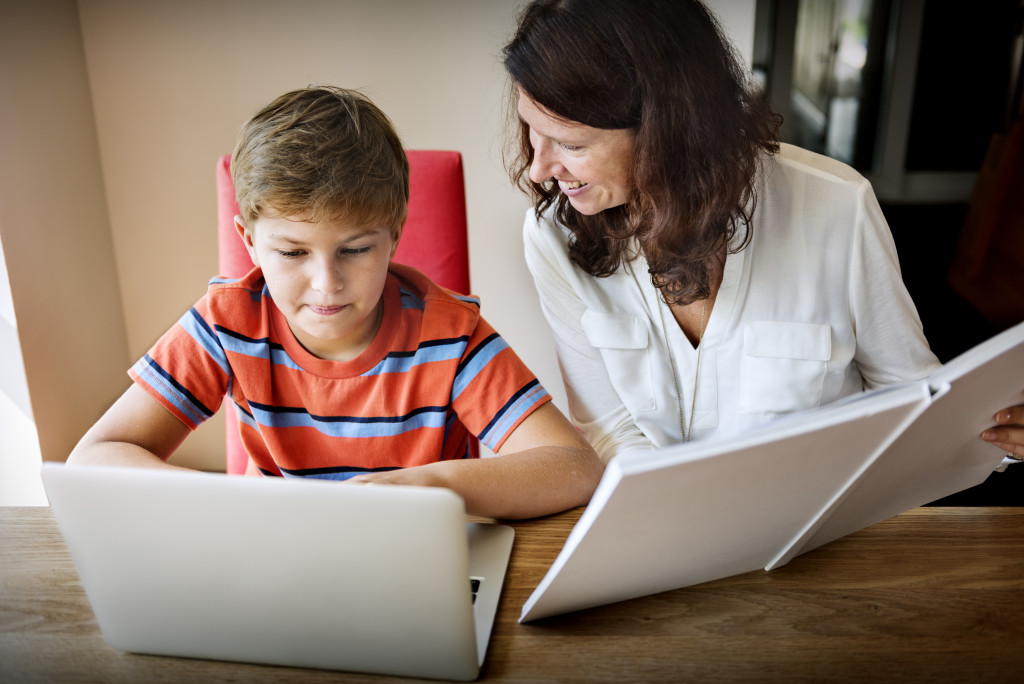Your child doesn’t have many friends, and you’re wondering what to do about it? As parents, we want to be as involved in our children’s lives as possible, whether by taking them to extra-curricular activities or making sure that they’re getting the best education possible. Sometimes, though, we don’t know what to do when they aren’t very good at something, especially when it comes to making friends and fitting in with others. Maybe your kid is shy, or they don’t know how to interact with others. Perhaps you’re unsure where to start to help your child improve their skills when interacting with other kids. Whatever the case may be, there are several things you can do as a parent to help your child learn how to make friends and get along better with other kids.
The following strategies can help you help your child improve their social skills and make more friends at school and out in the community.
Find People to Work on Skills With
If you don’t know anybody else in your child’s social circle, it can be hard to find other kids with them to work on their skills. In that case, look for a sport or activity club that caters specifically to kids who want to improve their particular skills. For example, if your son wants to become a better soccer player, there are clubs and camps where he can attend training sessions and play against other kids of similar ability levels.
Avoid the One-Best-Friend Trap
Many children only have one very close friend. While it’s healthy to be in a relationship with a bestie, it can be dangerous to depend on that one person too much. If your child has only one close friend, they may be hurt and confused if anything happens to that person. Encourage them to interact with more people so that they are less dependent on having just one very close companion.
Ignore the Kids Who Don’t Want to Play Nice
Have a rough day at school? Your kid is being bullied by another student, and you want to intervene. Before you call up that parent, though, keep in mind that not all conflicts can be solved just because one kid seems more innocent than another. Some kids are mean on purpose. If that’s true for your kiddo, it might be time to step back and let him learn how to deal with his peers on his own.
Ask Their Teachers for Help
Teachers are a fantastic resource to help with social skills. At daycare centers, children learn how to interact with other kids. They can talk about setting boundaries and problem-solving ways to get along better with others at school. If your child’s teacher says they’re having trouble integrating into class or aren’t getting along well at recess, bring it up—it might be an opportunity for early intervention and could even nip bullying in the bud before it starts. Make sure to go through their teacher before contacting a parent of another student; not all parents want unsolicited feedback from people outside of their kid’s life.

Take a Trip Together
One of the best ways to help your children with their social skills is to get them out of their comfort zone. Traveling can be a great way to make new friends, especially if you include various activities throughout your trip. In addition to getting some quality family time in, travel can help improve kids’ social and emotional well-being! Just because we’re on vacation does not mean we need to isolate ourselves from interacting with others or relaxing for a few days.
Teach Them How to Ask for Help
If your kids don’t have a circle of people they consider friends, chances are they’re missing some basic skills. Specifically, they don’t know how to ask for help or accept it when offered. Having trouble making friends as an adult is largely due to a perceived inability to connect with others—but it starts way before adulthood! Teach them to ask for help whenever necessary and, of course, offer support when someone is in need.
Let Them Play by Themselves
What a lot of parents don’t realize is that it’s okay for their kids to spend time by themselves. As much as we want our children to make connections and socialize, sometimes they need time alone to figure out what it is they want to do and how they want to connect with others. Give them some space and maybe encourage them to read a book or go out for a walk on their own—it could be just what they need!
As parents, we are constantly worried about our children’s well-being. What do we do if our child is starting to suffer from a social deficit? Social anxiety afflicts many people and can make it difficult for individuals to interact with others comfortably. These tips can help you make them more sociable, and eventually, make friends.



